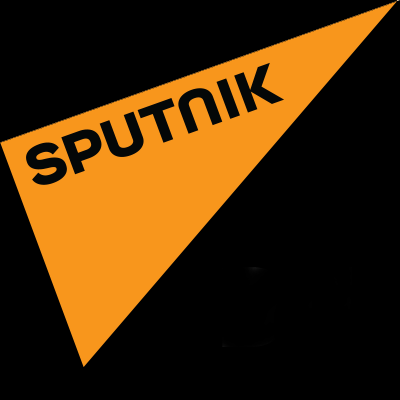Sputnik Exclusive
From Rust to Riches:
The 'Fake News' Capital That Helped Trump Beat Hillary
The 'Fake News' Capital That Helped Trump Beat Hillary
Photo: Rašo
While the world was reeling in shock at the election of Donald Trump as US President, the residents of a small Macedonian town were less surprised. For months, the residents of Veles had been making big bucks from pro-Trump stories. They told Sputnik how they put the once-mighty industrial town back on the map, as the world's capital of "fake news."
Amid a sensationally bitter US presidential campaign, "fake news" became the country's hottest buzzword in 2016, with many US analysts declaring that the phenomenon played a significant role in Trump's success.
Outrageous stories about Donald Trump or Hillary Clinton were shared millions of times on Facebook. Two of the biggest fabrications were claims that in 2013, Clinton said that Trump should run for president and that the Pope had endorsed Trump.
Clinton and her supporters have sought to blame shadowy "big data" analysts or "Russian hackers" for persuading the electorate to vote for the Republican candidate.
In reality, the "fake news" that dominated social networks during election season arose out of the kind of economic decline that most Trump supporters would recognize. But rather than the rust belt in the US, this story started in a small town called Veles, Macedonia.
Outrageous stories about Donald Trump or Hillary Clinton were shared millions of times on Facebook. Two of the biggest fabrications were claims that in 2013, Clinton said that Trump should run for president and that the Pope had endorsed Trump.
Clinton and her supporters have sought to blame shadowy "big data" analysts or "Russian hackers" for persuading the electorate to vote for the Republican candidate.
In reality, the "fake news" that dominated social networks during election season arose out of the kind of economic decline that most Trump supporters would recognize. But rather than the rust belt in the US, this story started in a small town called Veles, Macedonia.
The main protagonists are educated, IT-savvy young people with a desire to make money and skills that outstrip their job prospects. Their sole concern: making thousands of dollars by giving American news consumers what they wanted - stories about Trump.
How Tito's Veles Became Trump's Veles
Nestled in the hills of Macedonia, Veles used to be called Titov Veles, in honor of former Yugoslav President, Marshal Josip Broz Tito. An industrial area which was once a key manufacturer of metal and porcelain, the region's economy has suffered badly since the break-up of the former Yugoslavia.

The River Vardar, which runs through Veles. Photo: Rašo
Many young people here are well-educated, but jobs are few and far between and wages are low. For local youths, the opportunity to earn thousands of dollars seemed like an opportunity too good to miss. Last year, Veles became known as "Trump's Veles," because of the proliferation of pro-Trump news websites registered in the town.
Dimiter (his name has been changed to protect his identity) was just 18 when he started working in the fake news business. He was one of several teenagers in his local high school who spent their evenings posting stories on fake news websites, targeting Facebook groups of hundreds of thousands of Trump supporters who shared news about their idol online.
Dimiter (his name has been changed to protect his identity) was just 18 when he started working in the fake news business. He was one of several teenagers in his local high school who spent their evenings posting stories on fake news websites, targeting Facebook groups of hundreds of thousands of Trump supporters who shared news about their idol online.
"I think the whole business started with two friends that somehow figured out that they can make really easy money doing fake news, or sensational news, writing about Donald Trump," he told Sputnik.
He and his school friends started their operations by buying plausible-sounding domain names, installing Wordpress on the new site to make it look like a legitimate blog, and then loading it with articles. Once they had 50-60 articles on the website, they applied to become affiliated with an advertising program such as Google Adsense, which earns them revenue from website traffic.
US residents account for more than a quarter of the world's consumer market, making election fever there a prime opportunity to earn advertising revenue. This revenue may be based on the principle of pay per sale, pay per click on the advertiser's banner, or pay per impression, according to how many times an advertiser appears on the site.
"The American click is the most valuable, so that's why they started doing this business. They targeted only American people and they targeted news about Donald Trump because we wanted to get a lot of American clicks, just to earn money."
Although his site published pro-Trump content, Dimitar was not in fact a supporter of the Republican candidate. His preference was for Bernie Sanders, but news about the Democratic contender didn't get him as many clicks and, consequently, advertising profit.
"I know a lot of my friends tried to post news about Hillary and Bernie Sanders but only Donald Trump news was very clickable and only the Donald Trump stories were very shared," he explained.
Dimiter said that his site got shut down by in June 2017 by Google, which "went on this spree of shutting down sites that are here in Veles so in that period they pretty much took all of the sites."
He and his school friends started their operations by buying plausible-sounding domain names, installing Wordpress on the new site to make it look like a legitimate blog, and then loading it with articles. Once they had 50-60 articles on the website, they applied to become affiliated with an advertising program such as Google Adsense, which earns them revenue from website traffic.
US residents account for more than a quarter of the world's consumer market, making election fever there a prime opportunity to earn advertising revenue. This revenue may be based on the principle of pay per sale, pay per click on the advertiser's banner, or pay per impression, according to how many times an advertiser appears on the site.
"The American click is the most valuable, so that's why they started doing this business. They targeted only American people and they targeted news about Donald Trump because we wanted to get a lot of American clicks, just to earn money."
Although his site published pro-Trump content, Dimitar was not in fact a supporter of the Republican candidate. His preference was for Bernie Sanders, but news about the Democratic contender didn't get him as many clicks and, consequently, advertising profit.
"I know a lot of my friends tried to post news about Hillary and Bernie Sanders but only Donald Trump news was very clickable and only the Donald Trump stories were very shared," he explained.
Dimiter said that his site got shut down by in June 2017 by Google, which "went on this spree of shutting down sites that are here in Veles so in that period they pretty much took all of the sites."
"A great opportunity for us"
The teenager earned thousands of dollars from his fake news website and is now studying web design in the Macedonian capital Skopje. Due to a lack of career opportunities in his homeland, he intends to study and work abroad.
"For Macedonia and Veles, we don't have any job opportunities, or any opportunities in that sense, and for our standards, [where] the average salary is 200-300 euros, we made a lot more. So it was a very big opportunity for us."
Dimiter says that he knew several fake website operators who were even younger than him. Others, such as 34-year-old Maria (her name has been changed to protect her identity), were older.
She entered the business after seeing her younger relatives making money on pro-Trump websites, and started running a website publishing stories about politics, healthy living and celebrities.
In Veles alone, Maria estimates that earlier this year there were 200-300 young people publishing news stories for an American audience.
"For Macedonia and Veles, we don't have any job opportunities, or any opportunities in that sense, and for our standards, [where] the average salary is 200-300 euros, we made a lot more. So it was a very big opportunity for us."
Dimiter says that he knew several fake website operators who were even younger than him. Others, such as 34-year-old Maria (her name has been changed to protect her identity), were older.
She entered the business after seeing her younger relatives making money on pro-Trump websites, and started running a website publishing stories about politics, healthy living and celebrities.
In Veles alone, Maria estimates that earlier this year there were 200-300 young people publishing news stories for an American audience.

An apartment building where fake news websites were registered. Photo: Sputnik, Andrei Veselov
"I think it has had a positive effect on the social life of young people. Everyone started doing this for the money," she told Sputnik.
"A long time ago, Veles was a strong industrial city. Little by little, the factories closed; parents don't have anything to eat, children suffer and everyone is looking for a way to get easy money. People took the chance that came along and well done to them."
"I don't think there is anything in Veles that compares to this level of money," Maria said.
"A long time ago, Veles was a strong industrial city. Little by little, the factories closed; parents don't have anything to eat, children suffer and everyone is looking for a way to get easy money. People took the chance that came along and well done to them."
"I don't think there is anything in Veles that compares to this level of money," Maria said.
A town of firsts
These days, Veles might be best-known internationally as a center of pro-Trump propaganda, but in fact, this town has a proud and distinguished history as a cultural and economic center.
On the cultural front, Veles was the site of many firsts in Macedonian history. The country's first grammar school, music school, theater, library and museum were all established here.
Veles was the second-largest industrial producer in the former Yugoslavia, with thriving porcelain, metalworking, textiles and agricultural sectors. That country's disintegration was a huge blow to the local economy, town mayor Slavko Chadiev explained.
On the cultural front, Veles was the site of many firsts in Macedonian history. The country's first grammar school, music school, theater, library and museum were all established here.
Veles was the second-largest industrial producer in the former Yugoslavia, with thriving porcelain, metalworking, textiles and agricultural sectors. That country's disintegration was a huge blow to the local economy, town mayor Slavko Chadiev explained.

Mayor of Veles Slavko Chadiev. Photo: Sputnik, Andrei Veselov
"After the breakup of Yugoslavia, industry collapsed overnight and people were left without work," he said.
"The unhappy transition that befell Yugoslavia had perhaps the biggest effect here, on this region."
"The unhappy transition that befell Yugoslavia had perhaps the biggest effect here, on this region."

A derelict factory in Veles. Photo: Sputnik, Andrei Veselov
While the metalworks brought local people steady, well-paid work, the production took a great toll on public health. In 2001, the WHO named Veles one of the most polluted towns in the world, due to the soil and air pollution from the smelting of metals such as zinc and lead in local factories.
The last metalworks closed in 2003, after 30 years in service, taking 1,200 jobs with it. Despite high unemployment, locals supported the decision, and a plan by Macedonia's Metrudhem, a subsidiary of the Swiss metals company Mineco, to restart the factory in 2011 was shelved after a public protest.
The last metalworks closed in 2003, after 30 years in service, taking 1,200 jobs with it. Despite high unemployment, locals supported the decision, and a plan by Macedonia's Metrudhem, a subsidiary of the Swiss metals company Mineco, to restart the factory in 2011 was shelved after a public protest.

A slag heap from a local foundry. Photo: Sputnik, Andrei Veselov
By 2006, 17,000 of 44,000 inhabitants in Veles were unemployed. Since then, the economy has improved, with the opening of new industrial zones and more foreign investment.
"Nothing happened in our town for 20 years, then two and a half years ago the industrial zones were sold and investments began," Chadiev explained.
According to official figures, there are now 3,200 unemployed in Veles and in the past six years, the economy has grown between 3.2 and 3.9 percent annually. One of the largest new investors is a German firm, Marquart, which has opened a factory making computer parts for the car industry.
Having already suffered from a steep economic decline, Macedonia managed to avoid the economic slowdown that affected the rest of Europe after the 2008 financial crisis. However, a recent bout of instability in Macedonian politics has brought growth to a standstill.
"For ten years, when all of Europe was in a recession, Macedonia did not have a problem, but in the last quarter we were in the red."
"Because of the political situation, investments have stopped in the whole country, not just here," the mayor explained.
Many young people continue to leave the region in search of work elsewhere. Of those who stay at home, many now travel 53km each way to work in the capital Skopje or 36km to another nearby town, Stip.
"Nothing happened in our town for 20 years, then two and a half years ago the industrial zones were sold and investments began," Chadiev explained.
According to official figures, there are now 3,200 unemployed in Veles and in the past six years, the economy has grown between 3.2 and 3.9 percent annually. One of the largest new investors is a German firm, Marquart, which has opened a factory making computer parts for the car industry.
Having already suffered from a steep economic decline, Macedonia managed to avoid the economic slowdown that affected the rest of Europe after the 2008 financial crisis. However, a recent bout of instability in Macedonian politics has brought growth to a standstill.
"For ten years, when all of Europe was in a recession, Macedonia did not have a problem, but in the last quarter we were in the red."
"Because of the political situation, investments have stopped in the whole country, not just here," the mayor explained.
Many young people continue to leave the region in search of work elsewhere. Of those who stay at home, many now travel 53km each way to work in the capital Skopje or 36km to another nearby town, Stip.
"Trump needs to thank our people in Macedonia a little more."
Almost a year after Trump's election, controversy over "fake news" and the role it played in his victory over Clinton continues to rumble in the US. In Veles, by contrast, local people are relaxed and even supportive about the helping hand their youths have given Trump.
"At least we are known for something. I don't know these guys, but I know that a lot is being pushed on the Internet and a lot of money is being made," one passer-by told Sputnik.
"I think computer-based work is the most lucrative, well-paid profession. Computer engineering makes a lot of money and there is always work."
"At least we are known for something. I don't know these guys, but I know that a lot is being pushed on the Internet and a lot of money is being made," one passer-by told Sputnik.
"I think computer-based work is the most lucrative, well-paid profession. Computer engineering makes a lot of money and there is always work."

A local church in Veles. Photo: Sputnik, Andrei Veselov
Another local, Dime, told Sputnik that he is proud of his son, who also runs his own fake news site.
"My son does it too, he's 20. That's how the kids make money, it's great," he exclaimed.
Another local said that he thought the US President should be more publicly thankful to the people of Veles for their help during the election campaign.
"Of course I support these guys," he said. "He [Trump] almost said thank you but I don't think it's enough, he needs to thank our people in Macedonia a little more."
A group of schoolboys said that they had heard about the exploits of internet businesses in Veles, but weren't planning on getting involved themselves.
"I want to be a footballer, not work on a computer," one said.
"My son does it too, he's 20. That's how the kids make money, it's great," he exclaimed.
Another local said that he thought the US President should be more publicly thankful to the people of Veles for their help during the election campaign.
"Of course I support these guys," he said. "He [Trump] almost said thank you but I don't think it's enough, he needs to thank our people in Macedonia a little more."
A group of schoolboys said that they had heard about the exploits of internet businesses in Veles, but weren't planning on getting involved themselves.
"I want to be a footballer, not work on a computer," one said.

A roundabout in Veles. Photo: Rašo
A Russian resident of Veles, Natalia, said that high levels of corruption and organized crime in the region, as well as a lack of job opportunities, means that writing fake news is seen as a respectable job here.
"There is an issue with drugs and so on, which are transported across Kosovo and on to Germany, for example. There is the Veles mafia, that's a whole other issue. Unfortunately, a lot of young people here go down that path, and people who have some kind of intellectual abilities, who have made a half-legal business, there's only respect for them," she explained.
"There is an issue with drugs and so on, which are transported across Kosovo and on to Germany, for example. There is the Veles mafia, that's a whole other issue. Unfortunately, a lot of young people here go down that path, and people who have some kind of intellectual abilities, who have made a half-legal business, there's only respect for them," she explained.
A perfect storm of factors combined to turn Macedonia into the world's center of fake news, she added.
"The level of education is very high, particularly in IT. The computer programmers who graduate from the IT faculty can work anywhere. It's a small country, with good education, online access everywhere and high unemployment. I think it's mostly students doing it, who for some reason haven't left the country yet."
Last year's tsunami of fake news took the US media by surprise, and they have promised to be better prepared for 2020. Google and Facebook, for example, have launched a crackdown on fake news. The former shut down access to hundreds of websites registered in Veles and elsewhere, while the latter has rolled out a fact-checking tool. America will have to wait and see what the kids from Veles have up their sleeve for next time.
"The level of education is very high, particularly in IT. The computer programmers who graduate from the IT faculty can work anywhere. It's a small country, with good education, online access everywhere and high unemployment. I think it's mostly students doing it, who for some reason haven't left the country yet."
Last year's tsunami of fake news took the US media by surprise, and they have promised to be better prepared for 2020. Google and Facebook, for example, have launched a crackdown on fake news. The former shut down access to hundreds of websites registered in Veles and elsewhere, while the latter has rolled out a fact-checking tool. America will have to wait and see what the kids from Veles have up their sleeve for next time.

